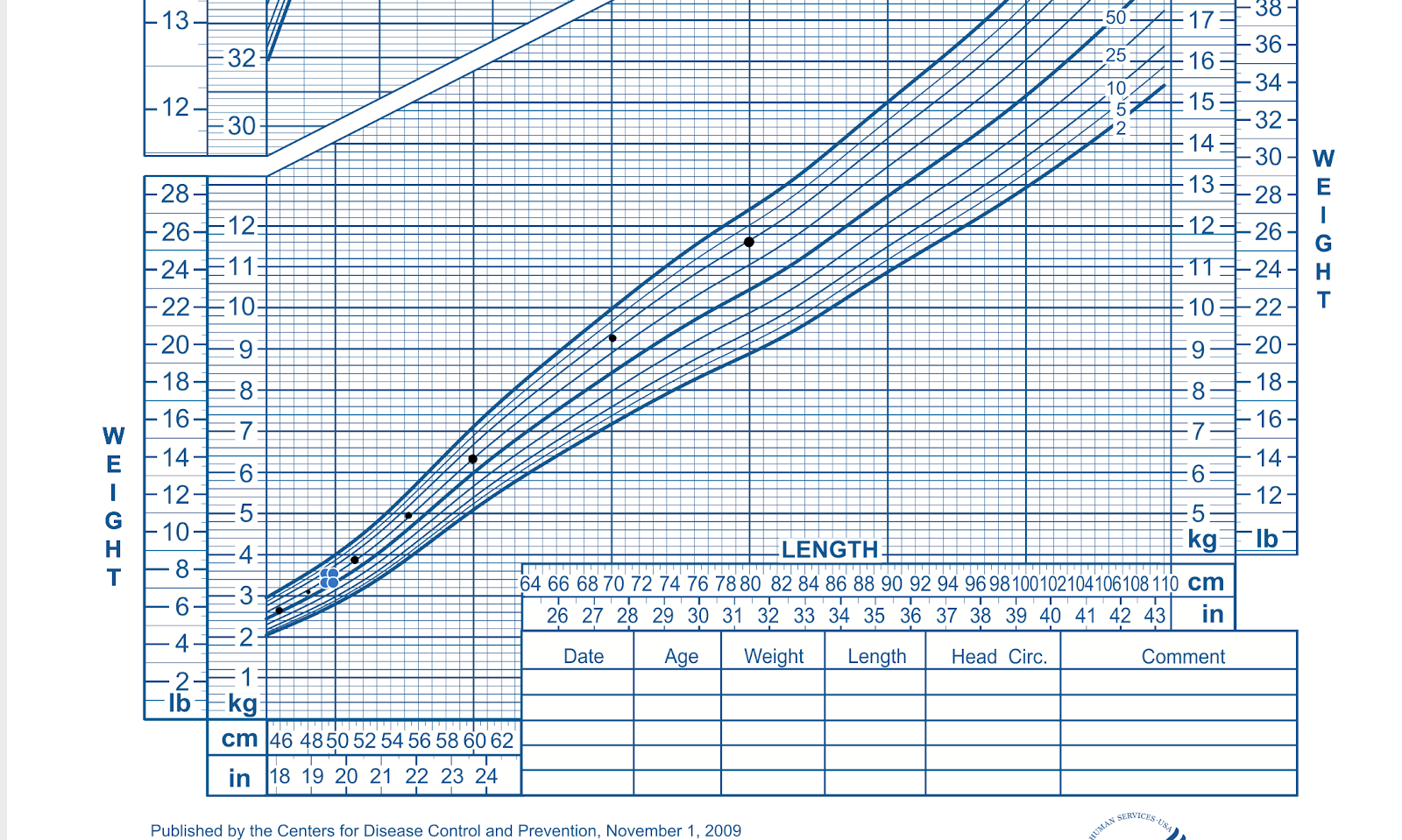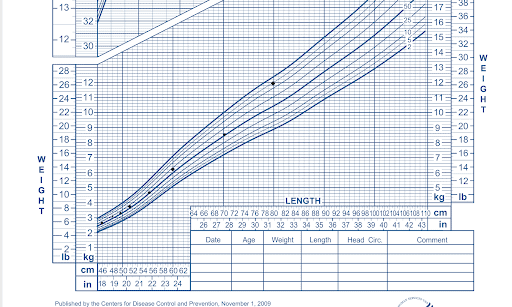Is My Toddler Overweight?
May 27, 2020, Updated Dec 20, 2024
This post contains affiliate links. Please see our disclosure policy.
Have you ever wondered, “is my toddler overweight?” Some parents worry because their toddler seems bigger than other kids, some because their child’s weight is charted at a high percentile at a pediatrician visit, and some because they feel like their child’s appetite is huge. I’ve even heard from parents who never used to worry at all, but started to after their pediatrician made a comment about their child’s size or diet. The point is that no matter what sparked this train of thought for you, it’s normal as a parent to worry when you feel like something going on with your little one could be cause for concern.
My own son was always at a higher weight percentile than height, as a baby and as a toddler, and it sometimes made me wonder if I was doing something wrong in how I was feeding him. When it’s your own child, it’s so easy to worry, even if they seem perfectly happy and healthy.
So if you’ve ever asked yourself this question or one similar to it, this post is for you. It should give you the information and understanding you need to look at your child’s growth and development as a whole, and to set yourself free from tracking, comparing, and worrying (if that’s where you’re at right now).
Growth & BMI for Toddlers
First, let’s chat about where all this talk about size and weight tends to stem from.
BMI (Ages 2+)
After age 2, one of the ways we measure weight and size is with BMI (Body Mass Index).
Technically, a BMI at the 85th percentile or higher (but less than the 95th percentile) means a child is overweight. A BMI at or above the 95th percentile means a child is obese. (OBESE! Do we really need to label a 2 year old as obese?!)
But, just like for adults, it’s really important to know that BMI does NOT tell us the full story about a child’s weight or health.
Weight & Length Percentiles (Ages 2 and Under)
If your child is under 2, the pediatrician won’t yet calculate their BMI. Instead, they’ll give you your child’s weight and length percentiles.
The one that you want to pay attention to is the weight for length percentile, but please do not obsess over the number. Just because they’re in a higher percentile, does not necessarily mean there’s a problem. Rather than looking for one ideal number, what we want to see is consistent growth along your child’s growth curve.
For example, this child below is consistently plotting in the 75th to 90th percentile. This likely is just where their body is meant to be weight-wise. If they’re otherwise healthy and eat a generally healthy diet, I wouldn’t be concerned about the higher percentile.

We want to evaluate what might be going on if we see a huge jump in their percentile (like going from the 50th percentile to 80th percentile). The same goes for a child whose percentile drastically decreases– we’d want to evaluate the child and the circumstances to understand better what is going on.
Below, we see a child who consistently was plotting around the 50th percentile, and then quickly jumped up to the 95th percentile. This doesn’t happen often, but I wanted to show you what it looks like for comparison. When a child crosses one or two (or more) lines like this, they are increasing their percentile by quite a bit, and we’d want to look at what is going on for them.

But what if my child is bigger than the other kids?
With my son, thankfully my pediatrician always reassured me that he was right on track with his growth. He NEVER said a word to me about my son’s weight being too high. But with those BMI numbers I learned in school in my head, I was still worried to see my son fall in the overweight category. That’s why when my son turned 2, I asked his pediatrician outright, “Is his BMI a concern to you?”
I remember how he calmly and matter-of-factly replied, “Nope! His body is right where it needs to be. And, most toddlers start to lean out as they get closer to kindergarten age. I wouldn’t worry about it at all.” Can I tell you how much this was music to my ears?
If you’re still a bit concerned about your child’s size or weight, know that there are other, more important factors to consider. Things like:
Your Child’s Natural Frame & Size
Your child’s frame size and the amount of muscle they have can increase their BMI, but neither of these things are indications of a health problem. Also, some ethnic groups tend to be naturally larger or smaller framed, and that should be taken into account when looking at their weight.
Your Child’s Overall Growth
Again, remember that as long as they’re staying on or around their growth curve, any percentile can be okay.
Also, I find that many children tend to put on a little weight before they have a growth spurt. It seems like they grow out and then up, and continue in that pattern. That’s normal.
How do I know if I should be concerned about my child’s weight?
If you’re still thinking your child’s size is something you might need to address more actively, ask yourself the questions listed below. These are some of the things I would ask you about if we had a nutrition counseling session about your child’s weight.
- Have they always been at about the same percentile? (Fluctuations less than 10%)
- Are desserts offered sometimes (neither forbidden nor given freely)? Read this post and this post for more on why this matters and for help with handling dessert.
- Do you have an understanding of portion sizes, and how they fit into a child’s routine without being restrictive? (Read this post)
And, does your child:
- Have a larger or muscular frame? How about others in your family?
- Do some sort of physical activity daily?
- Follow a fairly regular routine of meals and snacks?
- Eat fruits or vegetables daily?
- Have sugar sweetened beverages infrequently?
- Understand when they are hungry and full? (See Teddy Belly chart below for help with this)
If you said yes to most of these questions, and your child does not have any health problems/concerns, then overall I would not be concerned about them being overweight. It’s likely they are the right weight for their body (though of course I can’t say that definitively without talking to you about your child).
If the answer is “no” to most of these questions, then I would say to address the items you said no to. You can always reach out to me for help if you need it. Remember that their weight is just a symptom of something else– usually an outside circumstance that you can address. It says nothing about who they are, or who you are.
How are you feeling about all this?
When a parent has a past history with weight struggles, it can be complicated to manage the feelings that come up around their child’s weight. If this is true for you, it’s okay to acknowledge that. It’s very normal for us to want to protect our children from experiencing the pain that we’ve gone through in our own lives.
It’s Okay to Ask for Support
Sometimes, without realizing it, our own history causes us to do things that actually sabotage our kids’ relationships with food and with their bodies. If you feel like this could be happening in your family, that’s okay. Noticing it is a big step, and you can always ask for help with how to move forward.
If you’d like some advice or guidance, you can start with your pediatrician, a therapist, or your own primary care doc. They would all be happy to help find the right support for your family.














Very informative. I always worry when I see big toddlers